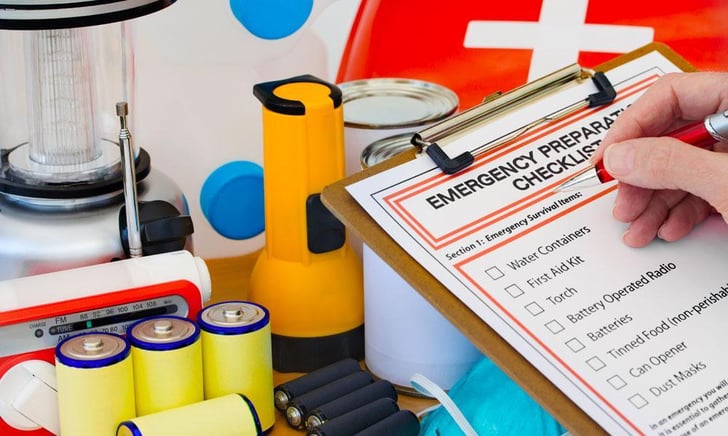Emergencies: How To Prepare Your Health & Safety
There are certain precautions and measures you can take to make sure you are ready for any worst-case-scenario situations.

Are You And Your Family Prepared In Case Of An Emergency?
There are certain precautions and measures you can take to make sure you are ready for any worst-case-scenario situations. Especially if you are pregnant or have certain health conditions, we recommend having your patient portal account information and chart printed out and stored in a private, but easily accesible location so that you can have the physical copy with you in the case of an emergency. If pregnant, we also recommend having your hospital bag prepared and ready. Lastly, having a list of your medications written out will also be helpful.
For any personal concerns, consult your Garden OB/GYN specialist for guidance on how to ensure your health is protected during a state of emergency.
For more general safety recommendations, below are some other helpful tips that are government-recommended.
How To Stock Up And Prepare For An Emergency:
Water:
* Stock up with at least enough water to last you 4 days at home
* How much water is “enough?” St least one gallon per person in your household per day
Food:
* Stock up with at least 2 weeks worth of non perishable food
* Non perishable food is important as it doesn’t need to be refrigerated before opening, so in case the power goes out, you will still have safe food to eat
* If you have pets or babies, don’t forget to buy their water and food items as well
What Tools Might I Need?:
* Flashlights (battery powered)
* Lanterns (battery powered)
* Candles and matches (in waterproof container)
* Portable fire extinguisher
* Batteries
* Battery powered radio
* Solar cell phone chargers or power inverters
* First aid kit with gauze, tape and bandages
* Soap, hand sanitizer, cosmetic items (toothbrush, tooth paste etc)
* Toilet paper and paper towels
* Face dust masks to cover mouth and nose in case of air pollution
* Sleeping bags, pillows, blankets & clothes
* Disposable plates and utensils
* Standard tool kit items ( wrench, hammer, scissors, pliers etc.)
* Manual can opener
* Garbage bag
* Important documents stored in waterproof container (birth certificate, social security card, insurance policies, medical papers, etc.)
* At least a weeks worth of prescription medications
* Cash in case banks, ATMs and cellphones digital-pay features are unavailable
































